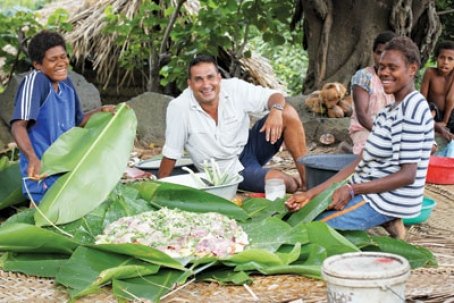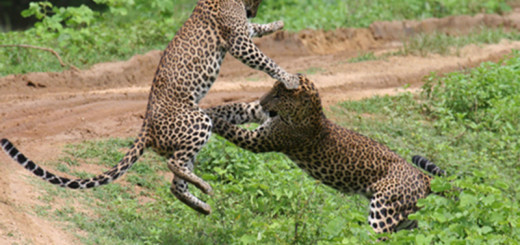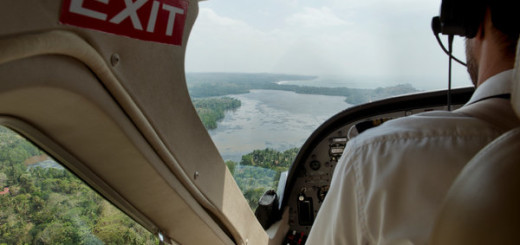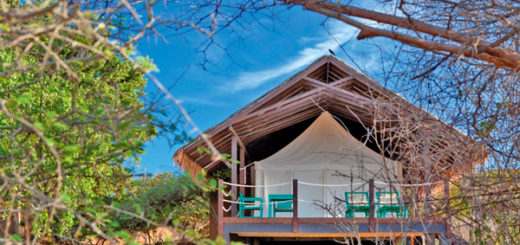Kuruvita’s island feasts
by Jetwing · Published · Updated
AT age 4, Peter Kuruvita went to Sri Lanka to live in his family’s 350-year-old ancestral home.
“My father wanted to bring the family to Sri Lanka to ensure that we understood who he was,” said the acclaimed Australian chef, restaurateur and media personality who is known for his culturally inspired cooking that’s highly influenced by his Sri Lankan father and Austrian mother.
“It had a kitchen which was called the black kitchen. In 1969 there wasn’t much electricity and the kitchen was wood-fired, so the soot from the fire had blackened the whole kitchen,” said Kuruvita during a phone interview recently.
“And in that kitchen was a group of very, very passionate women led by my grandmother who was worse than Gordon Ramsey. She used to beat her two daughters, my aunts, if they didn’t cook properly,” he said.
“I know people from Asian countries who feel the same way — every food has a story, it’s got soul. There are so many things about it and for all those years I used to sit in the kitchen and listened to my grandmother — watched and helped her cook — and that’s where the passion for cooking was fostered… at 4.”
Kuruvita’s passion has propelled him to explore the island nations of Southeast Asia and the Pacific. Catch him in TLC’s (Astro Channel 707) brand new series Island Feast With Peter Kuruvita, which premieres tonight at 9.30pm. He will take viewers on his journey through scenic and sometimes remote havens, guided by the locals who call them home.
Kuruvita shares more in an interview below.
You have visited so many islands in Asia. Which one stands out?
It’s a tough question because the islands and the places that we went to all had their unique characteristics.
For me, you can travel anywhere in the world and stay in a five-star hotel, and you could be in your own city but I think the idea, to me, about travel and leisure travel is to get out, and get to know the people. The first thing that happens in that scenario is that all the misconceptions that you may have about a certain group of people are washed away because at the bottom of every human being is a beautiful heart and soul, and that’s what I search for.
You grew up in Sri Lanka. Why should people visit the island?
Sri Lanka is an amazing island. Thirty years ago it was a massive tourist destination and then a horrible war that killed nearly half a million people basically froze the place, and it stopped where it stood 30 years ago. Now it’s opened up and it is one of the most diverse islands in the world. It has everything. Some of the best surf breaks, to high, cold mountainous regions, waterfalls and beaches.
What did you enjoy most when filming the show?
What I want to do, as an Asian, is to bring into people’s rooms and televisions the beauty and diversity of Asia. So the best part is knowing that all these wonderful places will be exposed and hopefully, some of those misconceptions about Asia will be blown away by non-Asians.
Any difficulties faced during filming?
We certainly had our trials and tribulations of trying to find ingredients, bureaucracy here and there, but at the end of the day everybody was happy to have us there. Everybody understood what we were doing and it was fun. If you’ve seen the show you can see it’s not exactly the hardest thing I’ve done in my life. I’m having a great time doing it.
How do you balance your restaurant career with the show?
My life in restaurants has spanned 33 years and in that time I have opened and closed restaurants. I’ve owned my own restaurant but the last restaurant, Flying Fish, in Sydney, I operated for just shy of 10 years.
During that time I also opened other opportunities and worked with other hotel groups. The one that I’m involved in most heavily is Starwood and I have two restaurants in Fiji — a steakhouse and a Flying Fish. I’m also about to open a new restaurant in Noosa in the sunshine coast of Australia and we’re about to open a big island resort as well.
So the balance there was after 33 years of expertise to pull away from the restaurant that I went to, day to day, which was Flying Fish in Sydney (I still own a small part of it but I’m not involved). As for the other restaurants, through my contacts, I basically put a chef and manager into these places. I travel 200 days a year and I spend between seven and 10 days at a time, a minimum of four times a year, in each business but then I make sure that I employ the correct people. I stand for quality and people know that if they come to any of my restaurants, they may not see me but they will get the quality that I have promised, and that’s the way I balance it.
What’s your opinion on fusion food? Do you think this is a good development for food?
Fusion food doesn’t mean taking something from one country and something from another country, and just ‘hitting’ them together as hard as possible, and ‘hoping’ that it works. It’s about using ingredients, flavours and techniques in a very intelligent way to create a dish that is not confusing but highlights flavours and ingredients that are available to us.
If you’re stranded on an island, what will be the first meal you’d eat after you were rescued?
Rice and curry. On the island I’d be catching fish, so I would have had no problems living with coconut, seaweed, fish and lobster. But I would certainly be craving curry.
Has being a chef influenced your children’s perspective of their future careers? Would you want them to be chefs too?
Well, I’m the child of a Montessori teacher and my mum, from the start, always said that she’d never tell us what to do but would support us in whatever we did.
So I’m a chef, my older brother is a professional photographer and my younger brother is an avionics engineer and pilot. And there is no history of that in either of our families. So the answer is: I hope they don’t want to be a chef because it is a hard life.
Being a chef has been so glamorised these days that the kids now think, “Oh, I want to be a chef because I want to be famous”. If you want to be a chef because you want to be famous, you’re set up for failure. But if they want to do it I will support them wholly.
Have you come across a particularly ingredient that you’ll be using in your dishes from here on?
Probably shrimp paste. I hadn’t realised how good it could taste if handled well. I’ve also just discovered that Mexican oregano and Mexican bay leaves are very different to the ones we use.
You mentioned that your grandmother was worse than Gordon Ramsey. What are you like in a professional kitchen?
I don’t know how many people I have had to sack or let go over the years but I know every single one of them and we still get on together. I’ve never had that situation of being a screaming lunatic. It doesn’t make sense to me.
What do you think is the next big trend in food?
Mexican food. In Australia it’s having a revival. It’s going crazy but people do not know what Mexican food is, which is why I’m in Mexico filming another show right now.
Have you always been an adventure seeker?
Yes, my first adventure started when my father took us back to Sri Lanka. But instead of boarding a ship from England to Sri Lanka, my dad bought a van and drove us from England to Sri Lanka. We drove through Europe and Turkey, Iran, Iraq, the Khyber Pass and all the way to Pakistan and India. Then we took a ferry to Sri Lanka. I was only 4 but I still remember parts of the journey.
 Kuruvita (centre) is known for his rich cooking which is highly influenced by his Sri Lankan father and Austrian mother.
Kuruvita (centre) is known for his rich cooking which is highly influenced by his Sri Lankan father and Austrian mother.
Source: http://www.nst.com.my/life-times/style/showbiz-kuruvita-s-island-feasts-1.307427




